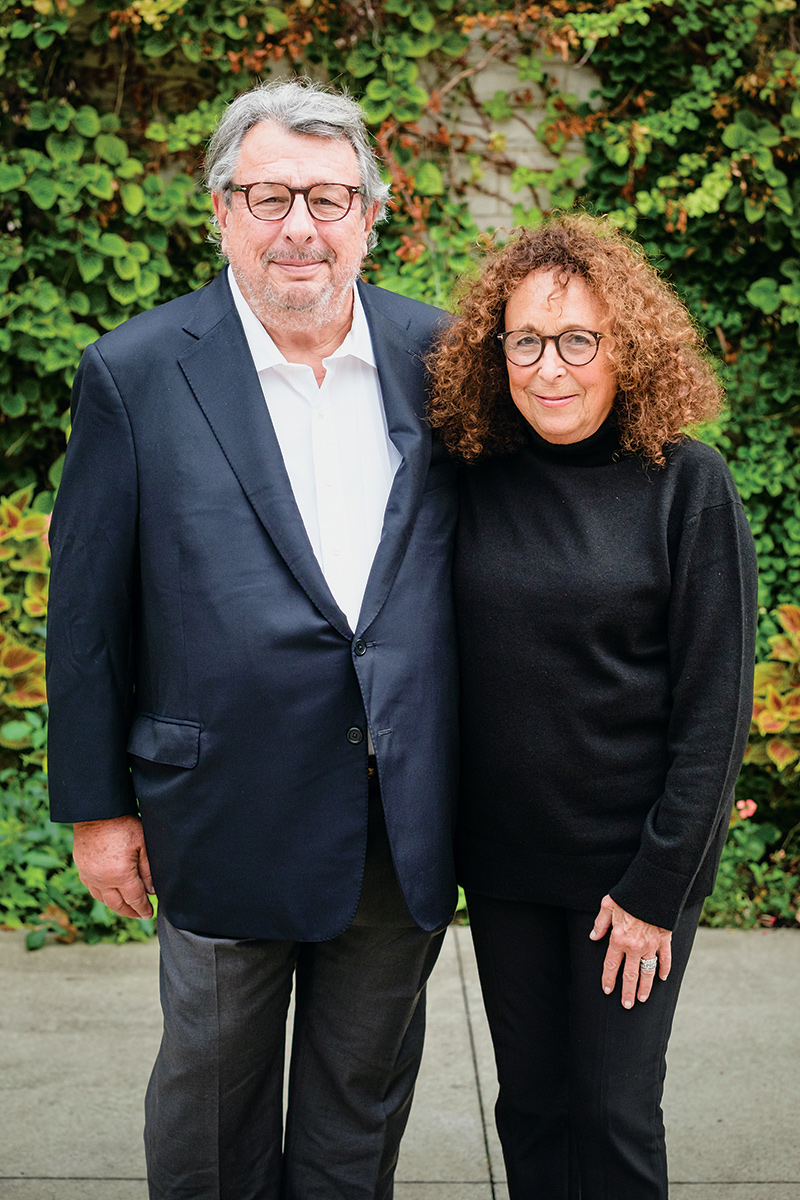lens
An Uncommon Vision
A tragic loss spurs nationwide collaboration to cure rare cancers

PHOTO: Andrew JordanMark and Linda Taxel created the Jed Ian Taxel Foundation for Rare Cancer Research with their family and in their son's memory. It is partnering on an initiative with the Case Comprehensive Cancer Center
After Jed Ian Taxel died of a metastatic rare cancer at the age of 39, his family knew the kind of memorial they wanted to build: cures for uncommon cancers.
They committed to accelerating discoveries and treatments—but how?
Then they met Gary Schwartz, MD, a renowned national expert in rare cancers, who had a vision for making it happen. They forged a bond that led to the creation of CURE: The Rare Cancer Initiative at Case Comprehensive Cancer Center (Case CCC), which Schwartz directs.
Launched with a $5 million commitment from the Jed Ian Taxel Foundation for Rare Cancer Research (JEDI), the CURE initiative aims to establish a national network among Comprehensive Cancer Centers and catalyze innovative approaches to identifying and treating rare cancers. The 5-year partnership between the foundation and Case CCC aims to raise an additional $7 million from donors.
"While we started this out to create a legacy for Jed, it's become so much more than that," said Mark Taxel, Jed's father and JEDI's chairman and CEO. "The work itself and the opportunity to impact so many lives over time is what drives us."
Rare cancers are defined as affecting only 15 out of 100,000 people annually, but collectively they make up about 25% of all cancers, according to the National Cancer Institute. They disproportionately affect children and young adults in the prime of life—like Jed Taxel.
A small number of people are ill at any time and are geographically dispersed, which "leads to a lack of research funding and, inevitably, death sentences for patients like Jed," Mark Taxel said.
The Taxels connected with Schwartz when he was chief of hematology and oncology at Columbia University's Irving Medical Center and deputy director of its Herbert Irving Comprehensive Cancer Center.
JEDI was so encouraged by Schwartz's vision that when he moved to Cleveland in 2023 to lead the Case CCC—a consortium of 400 physicians and scientists from Case Western Reserve, Cleveland Clinic and University Hospitals—the funding followed him.
Schwartz, also the vice dean of oncology at CWRU's School of Medicine, envisions a nationwide network of centers sharing data, tissue samples and other crucial information on rare cancers. Researchers will also use what's called "single-cell RNA sequencing" to analyze millions of genes in individual tumor cells with the aim of developing targeted therapeutic approaches.
"The goal is to really make an impact for people in desperate need of these new treatments," Schwartz said. "The gift from the Taxels will position us to be leaders in advancing this national effort."
— BARBARA BROTMAN





